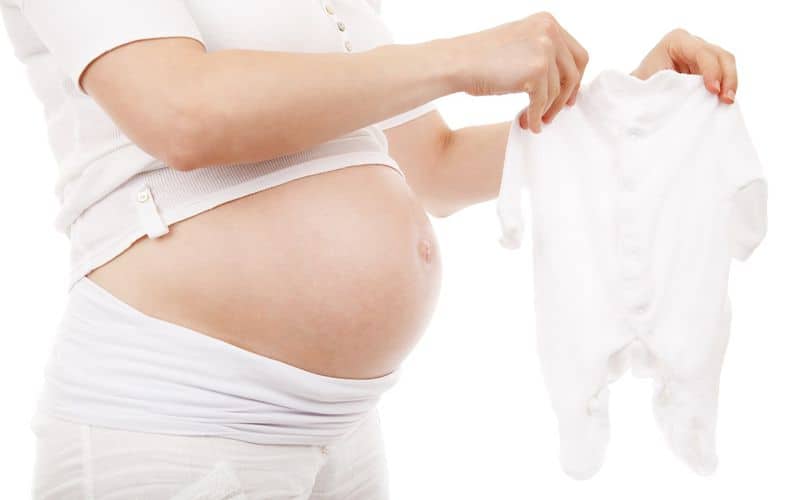Life is precious, but it will be even more precious if you have a child in your family. Being a parent of a newborn child is an enormous responsibility and a wonderful journey into a new world.
When it comes to parenting, you need to count every second of your baby and every penny of your financial assets. When you think about having a baby, you may be thinking only about holding the newborn in your hands and not the financial cost.
But sooner or later, you will have to think about the costs incurred during pregnancy and after the baby is born. Usually in the 7th month of pregnancy people start purchasing things like diapers, clothes, and a car seat for the baby. It is hard to imagine that these small expenses will one day become a mammoth debt. And of course, it won’t be a worthwhile activity to yell at yourself or stress out after you have received the hospital bills.
Just so you know: According to a USDA report, a family with an average income (the middle-income group) would spend nearly $12,000 in the first year of a newborn baby’s life and on their care related expenses. Even at the age of two, parents would again pay more than $12,500 per year. And these figures will continue to rise in the future.
This is the era we live in, where everything costs everything, and in which most new parents fail to ask a question that protects the family from future financial arrears. Every prospective parent wants to know the concrete answer to the question: how much does it cost to have a child?
Of course, you want to give your newborn the best in everything; from the purchase of the diapers to the Caesarean section, it will cost you hundreds or thousands of dollars. Don’t be worried, because I will explain to each and every one of you the costs that are involved from pregnancy to birth and beyond. I would advise you to do your homework before you welcome your little prince or princess into your life.
Why do you need a baby budget?
“A budget is telling your money where to go, instead of wondering where it went” – Dave Ramsey
The truth from Dave Ramsey’s quote is that an average middle-income parent spends about $50 a week on diapers and baby food alone, with no budget being calculated. And forty percent of mothers said that their spending exceeded what they expected or estimated during their maternity leave. So spending without a personal budget plan can have repercussions on your financial well-being and that of your child in the future. So remember that when you find out that you are pregnant, you should start to fill in financial gaps in your life and build a better financial cushion for your future.
For your better understanding, I have listed some basic factors that should be considered when budgeting for your newborn baby.
The budget for your newborn baby or the cost of having a baby in a hospital or home care facility depends on the factors listed below.
Type of Birth
Vaginal delivery without complications would cost on average $2000–$3600.
Vaginal delivery with complications would cost on average $4000–$8000.
A cesarean section (with or without complications) would cost an average of $6500–$12500.
Premature or low-weight births can cost 11 times more than a normal vaginal delivery without complications.
Hospital & Insurance You Choose
The simple fact is that the longer you stay in the hospital, the higher the bill you receive. Below is some information you need to know before choosing a hospital and checking coverage.
- When you are ready to choose a hospital, research the things that are most important from a mother and child’s perspective. Check to see if there is a blood bank near your home, a fast ambulance service, well-trained staff, and facilities for securing mother and child health records while on the go.
- As an alternative, you can also choose to share rooms in the hospital. This would save you a lot of money, but the level of service would not be the same as in the NICU.
- COST OF HAVING A BABY WITH INSURANCE: If you have insurance that covers all maternity care, check whether your doctor is covered under your insurance option. This would cover up to 70% of your hospital bill.
- COST OF HAVING A BABY WITHOUT INSURANCE: No need to freak out! We still have better options if you do not have insurance cover. You need to be more careful with your spending priorities. Try to solve your financial problems and save as much as possible for the future. Some hospitals offer discounts on medical bills for low-income parents.
- If you choose the separate NICU (“neonatal intensive care unit”) or other individual care units, you will be provided with facilities that include incubators, light therapy lamps, feeding tubes, a respiratory monitor and a cardiac monitor, as well as well-trained staff to look after your newborn.
- For other options, most companies offer full or partial coverage for their employees. If you are in a scenario where you are going to be a parent, it is not inappropriate to talk to your human resources department or senior officials at your workplace because if there are any maternity related costs, they could be covered.
Mother & Baby Care Products
A hospital may be a hygienic place, but it won’t be the same after moving into your home. Therefore both mother and child need clean clothes, furniture, and toys. Remember this when you go shopping for your newborn baby for the first time because it will be exciting and overwhelming, but it must also save money. So tell yourself that you shouldn’t go for luxurious high-end products that will only be used once.
The cost of having a baby can be emotional or sentimental for a parent when it’s your first time, and buying expensive health products or accessories might also be sentimental for some people.
So try to focus first on what you and your baby need for your health and concentrate on where the remaining money in your budget could be used to buy the rest of your baby accessories.
| LIST OF MOTHER & BABY CARE PRODUCTS | |
| List of Pregnancy Products | List of Baby Care Products |
| Strollers | Baby bath time |
| Car seats | Baby clothes and blankets |
| Baby carriers | Baby toys & activities |
| Diaper bags | Baby swings & bouncers |
| List of Nursery Products | List of Feeding Products |
| Bassinets & baskets | Highchairs |
| Cribs | Bottle feeding |
| Changing tables | Breastfeeding & breast pumps |
| Baby monitors | Solid feeding |
| Baby furniture & décor | |
| Gliders & rockers | List of For Mom |
| Gifts for mom | |
| List of Diapering Products | Maternity clothes |
| Diapers and diaper pails | Nursing bras and clothes |
| Diaper bags | Pregnancy comfort & nursing pillows |
| Diapering accessories | Shopping Guides and books |
| List of Health & Safety Products | |
| Baby proofing | |
| Car seats | |
| Medicine cabinet | |
| Safety gates |
I assure you that the above list will give you an idea of the necessary accessories for mother and infant care for each of the early stages of development.
Average Cost Of Raising a Child: (A Cheat Sheet)
Here is a cheat sheet for each stage of a child’s life, with the estimated cost per year from infant to 18 years old. It will also vary depending on where you live and the income level of your family. But these statistics will give you a basic understanding of how to raise a child.
| Age | Food | Clothes | Medical & health cost | Personal care | Pre/High School Needs | Transportation | Baby care | Household cost | Sum |
| Infant | $1,783 | $2,035 | $167 | $0 | $0 | $0 | $5,403 | $2,552 | $11,940 |
| 1 | $951 | $525 | $167 | $132 | $675 | $0 | $7,334 | $2,714 | $12,498 |
| 2 | $1,024 | $546 | $167 | $132 | $675 | $0 | $6,151 | $2,669 | $11,364 |
| 3 | $1,024 | $546 | $265 | $132 | $675 | $0 | $6,151 | $2,624 | $11,417 |
| 4 | $1,367 | $558 | $265 | $132 | $675 | $0 | $6,151 | $2,624 | $11,772 |
| 5 | $1,367 | $558 | $265 | $132 | $767 | $89 | $6,151 | $2,624 | $11,953 |
| 6 | $1,367 | $605 | $265 | $131 | $862 | $89 | $4,501 | $2,624 | $10,444 |
| 7 | $1,641 | $583 | $265 | $129 | $1,158 | $89 | $4,501 | $2,624 | $10,990 |
| 8 | $1,641 | $583 | $265 | $129 | $1,158 | $89 | $4,501 | $2,624 | $10,990 |
| 9 | $1,641 | $611 | $265 | $129 | $1,158 | $89 | $4,501 | $2,624 | $11,018 |
| 10 | $1,958 | $611 | $265 | $129 | $1,158 | $89 | $4,501 | $2,624 | $11,335 |
| 11 | $1,958 | $611 | $265 | $129 | $1,158 | $89 | $0 | $2,624 | $11,335 |
| 12 | $1,958 | $1,168 | $308 | $320 | $1,124 | $602 | $0 | $2,624 | $8,104 |
| 13 | $2,210 | $1,168 | $308 | $320 | $1,124 | $602 | $0 | $2,624 | $8,356 |
| 14 | $2,210 | $1,168 | $308 | $320 | $1,138 | $602 | $0 | $2,624 | $8,370 |
| 15 | $2,210 | $1,162 | $308 | $426 | $1,339 | $602 | $0 | $2,624 | $8,671 |
| 16 | $2,363 | $1,162 | $308 | $426 | $1,339 | $602 | $0 | $2,624 | $8,824 |
| 17 | $2,363 | $1,162 | $308 | $426 | $1,339 | $602 | $0 | $2,624 | $8,824 |
| 18 | $2,363 | $1,162 | $308 | $426 | $1,595 | $602 | $0 | $2,624 | $9,080 |
| SUM | $33,399 | $16,524 | $5,042 | $4,100 | $19,117 | $4,837 | $64,347 | $49,919 | $197,285 |
Basic Financial Tools That Will Help Your Child’s Future
None of us are financial experts, but these three basic financial instruments or services might help you to ensure the safety of your baby in the future.
- Take out life insurance, and please do not hesitate to do so. A few dollars would provide the financial support your baby needs if you or your spouse should die unexpectedly (Read: Life Insurance Benefits).
- Everyone needs health insurance because a single accident or illness will put a heavy strain on your savings and plunge you into substantial debt.
- It is important that you estimate the financial support your child will receive after your death. So making a will for your baby will protect the child in any economic uncertainty.
Ten Tips To Save Money
- Plan your budget from the moment you find out that you are pregnant, so that your normal life doesn’t become hectic afterward.
- Negotiate coverage with your doctor or health care professional as soon as possible. This is because some hospitals have the option for people on low incomes to claim deductions on their bills.
- Check your medical bills carefully, because 80% of medical bills are incorrect.
- Use crowdfunding sources to reduce medical costs.
- Reduce your costs for gas and electricity bills or other unnecessary expenses.
- Get help from friends, colleagues, or relatives who have been in this situation before.
- Talk to your human resources manager or senior official at your workplace to see if they have any options for paying your medical bills.
- Go to some second-hand shops and get used prams and cribs or from your close friends.
- Do not store things that you will not need after a week or a month.
- Sell the things you won’t need after a year.
Bottom Line
“Making the decision to have a child—it’s momentous. It is to decide forever to have your heart go walking outside your body.” – Elizabeth Stone
The joy of being a parent is overwhelming, but it is also a responsibility to make sure that your baby’s future is not spoiled by some simple financial slip-up on your part. So prepare for the future, because it is always unpredictable and uncertain. Give your child the hope of taking his or her first step into the future without stumbling.







